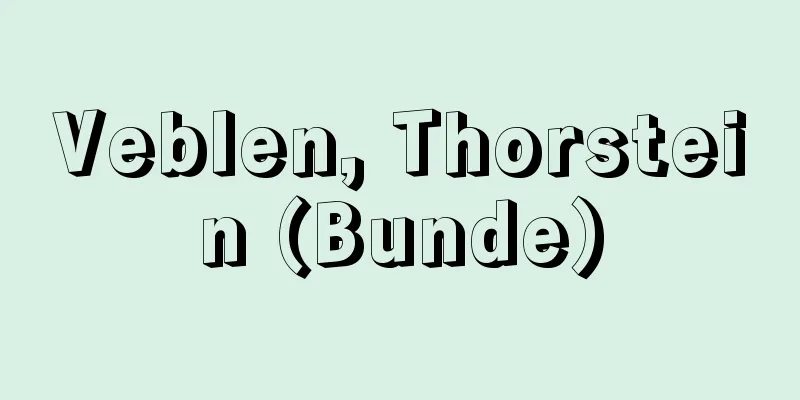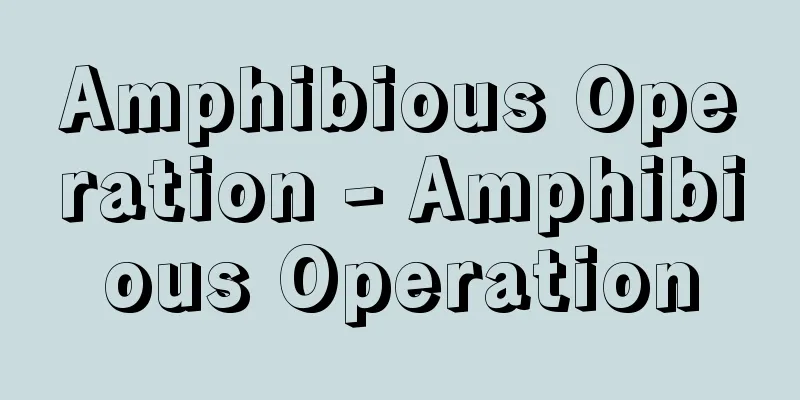Picky eating - henshoku

|
This refers to an unbalanced diet, where a person dislikes and does not eat certain foods, or prefers only a limited number of foods. Although there is an extremely large variety of foods, normal eating habits are determined by family environment, finances, preferences, and so on. Therefore, it is normal for meals in each household to have different types of food and cooking methods, and it is undeniable that there is an unbalanced diet in daily intake. If such a diet does not impair a person's health, there is no problem, but if a person dislikes common foods that many people eat and only eats an extremely unbalanced range of foods, which leads to nutrient deficiencies and repeatedly eats in a way that is harmful to health, then nutritional correction measures must be taken. Unbalanced eating in children in particular can be a major problem in terms of development. The causes of picky eating in children are manifold, including: (1) food being cooked to the taste or shape that the parents prefer; (2) being forced to eat foods with the excuses that "it's nutritious" or "it will make you smarter"; (3) food that the parents dislike becomes a suggestion without the child realizing; (4) having a history of vomiting or diarrhea after eating a certain food; (5) a loss of appetite because small fish have many small bones and are difficult to eat, or because the food is too hot; (6) the shape or smell of the food evokes unpleasant associations; and (7) a dislike of meat because animals are cute. In order to correct such picky eating in children, it is essential that parents identify and improve the cause, as well as create a mealtime atmosphere that helps children forget their likes and dislikes. Also, in many cases, group living and group meals with other children are effective. [Yoshiro Inoue] Source: Shogakukan Encyclopedia Nipponica About Encyclopedia Nipponica Information | Legend |
|
特定の食品を嫌って食べない、あるいは限られた食品ばかりを好んで食べるような偏った食事をすることをいう。食品の種類はきわめて多いが、通常の食生活は、家庭環境、経済、嗜好(しこう)などによって営まれている。したがって、各家庭の食事も、食品の種類や調理の方法が異なるのが普通であり、日常の摂取食品に偏りのあることは否めない。こうした食生活において、その人の健康に支障がなければ問題はないが、ごくありふれた、多くの人たちが摂取している食品を嫌い、極端に偏った範囲の食品しか食べず、そのために栄養素の不足を招き、健康を害するような食事を繰り返す場合には、栄養的な矯正対策を講じなければならない。とくに子供の偏食は、発育上からも大きな問題となる。 子供の偏食の原因は、〔1〕親の好む味や形に調理される、〔2〕「栄養があるから」「頭がよくなるから」などと強制を重ねる、〔3〕親の嫌う食品が、いつのまにか暗示となる、〔4〕ある食品を食べて、嘔吐(おうと)や下痢などをおこした経験をもつ、〔5〕小魚は小骨が多くて食べにくい、熱くて食べにくいなどによる食欲の減退、〔6〕食品の形や臭(にお)いなどが不快な連想をよぶ、〔7〕動物はかわいいからといった理由で肉類を嫌う、など多彩である。こうした子供の偏食を矯正するためには、親がその原因をつかみ、改善していくとともに、食物の好き嫌いを忘れさせるような食事の雰囲気づくりも肝要となる。また、子供同士の集団生活、集団給食などが功を奏する場合も多い。 [井上義朗] 出典 小学館 日本大百科全書(ニッポニカ)日本大百科全書(ニッポニカ)について 情報 | 凡例 |
>>: Dialectical materialism - dialectical materialism
Recommend
Pylorus
…the stomach is a sac-like part of the digestive ...
Issunboshi - Issunboshi
A folk tale. One of the unusual birth stories tha...
Women - Onnashu
1. Women among a large group of men and women. Ona...
Hiroshima University - Hiroshima University
A national university corporation. Based on Hiros...
Mogi das Cruzes (English spelling)
A satellite city in the southeastern part of Brazi...
Secret Observations - Kenchu Mikkan
A commentary on over 400 poems from the Kokinshu, ...
Disarticulation surgery - disarticulation surgery
...A surgical procedure in which a limb is amputa...
Moszkowski, A.
…German pianist and composer of Polish origin. He...
Seal of Incorporation - Katanashi Shoin
…There were two offices of the Yuseisho: the Kan ...
Prison of letters - Moji no Goku
Writer's crimes in China. Since the unificati...
Genetic Mutations
Mutations caused by changes in genetic makeup, inc...
Mehmet Ākif
1873‐1936 Turkish poet. Author of the lyrics for t...
Military aid - Gunjienjo (English spelling)
In a broad sense, it refers to any military assis...
Glenoid fossa
The concave articular surface on one of the bones ...
Outbreeding
...As a result, methods such as assortative matin...









